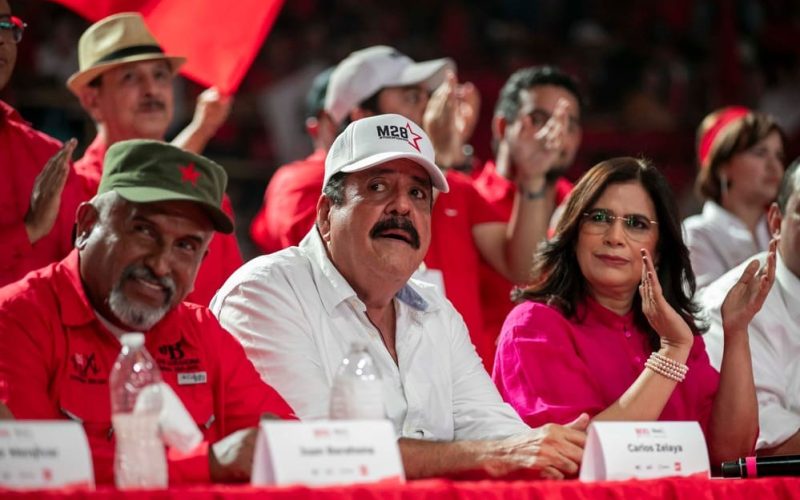With just a few weeks to go before the general elections, the ruling party LIBRE faces an unprecedented situation. The persistent decline of its candidate Rixi Moncada in the polls has raised alarm bells among both political actors and the public, given the possibility that the ruling party may resort to maneuvers to ensure its continued hold on power.
Experts and commentators have observed that the campaign’s storyline, which initially centered on the nation’s «refounding,» has now pivoted to tactics aimed at ensuring political longevity. The electoral climate reveals increasing friction among the executive, legislative, and Electoral Tribunal branches, marked by actions that some characterize as atypical or concerning.
Warning signs in the institutional sphere
Individuals with close ties to the National Congress and the Electoral Tribunal indicate ongoing internal pressures and deliberations concerning potential swift reforms that might alter procedural regulations during the electoral period. As stated by an opposition deputy in recent remarks, «They are in a state of desperation. They recognize that Rixi is not making progress and are seeking methods to manipulate the outcome.»
The use of the Permanent Commission of Congress as an instrument to validate extraordinary decisions has been pointed out as a possible mechanism of control over electoral institutions. This scenario is causing concern among different sectors, which warn of the need to respect constitutional procedures and guarantee transparency in the counting of votes.
Reactions from society and political actors
The situation has mobilized citizens and opposition parties, as well as international observers, who are demanding clear guarantees of transparency in the electoral process. Recent demonstrations in the country’s capital reflect a demand for the protection of the will of the people and the prevention of actions that could be interpreted as fraudulent.
From the perspective of the LIBRE party, the campaign continues to promote its messages and activities, although the focus has shifted toward damage control and the search for legitimacy in the eyes of public opinion. Meanwhile, citizens continue to closely monitor political movements, with particular attention to legal reforms that could affect the electoral framework.
Implications for governance and participation
The current scenario poses challenges for governance and institutional trust in Honduras. The combination of a sustained drop in the polls and the perception of extraordinary maneuvers may affect citizen participation and political stability. Experts in electoral law warn that any alteration of established procedures could have a ripple effect on the credibility of institutions and the acceptance of the final results.
Political tension remains high, and the coming days are shaping up to be decisive in determining not only the outcome of the contest, but also the country’s ability to maintain its democratic processes within the existing legal frameworks. Attention is focused on how institutions will respond to political pressure and on the willingness of actors to ensure a transparent and reliable process.
